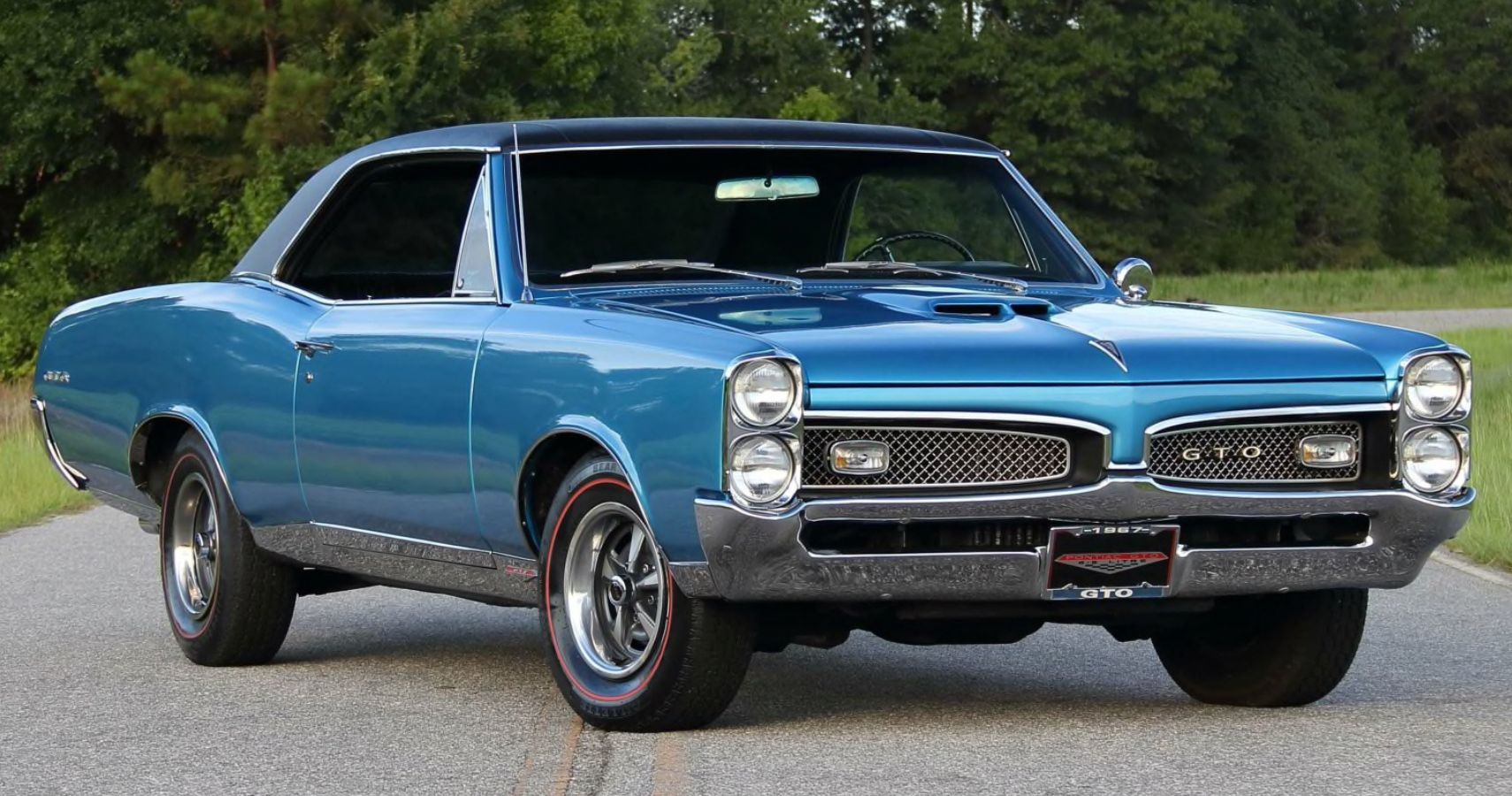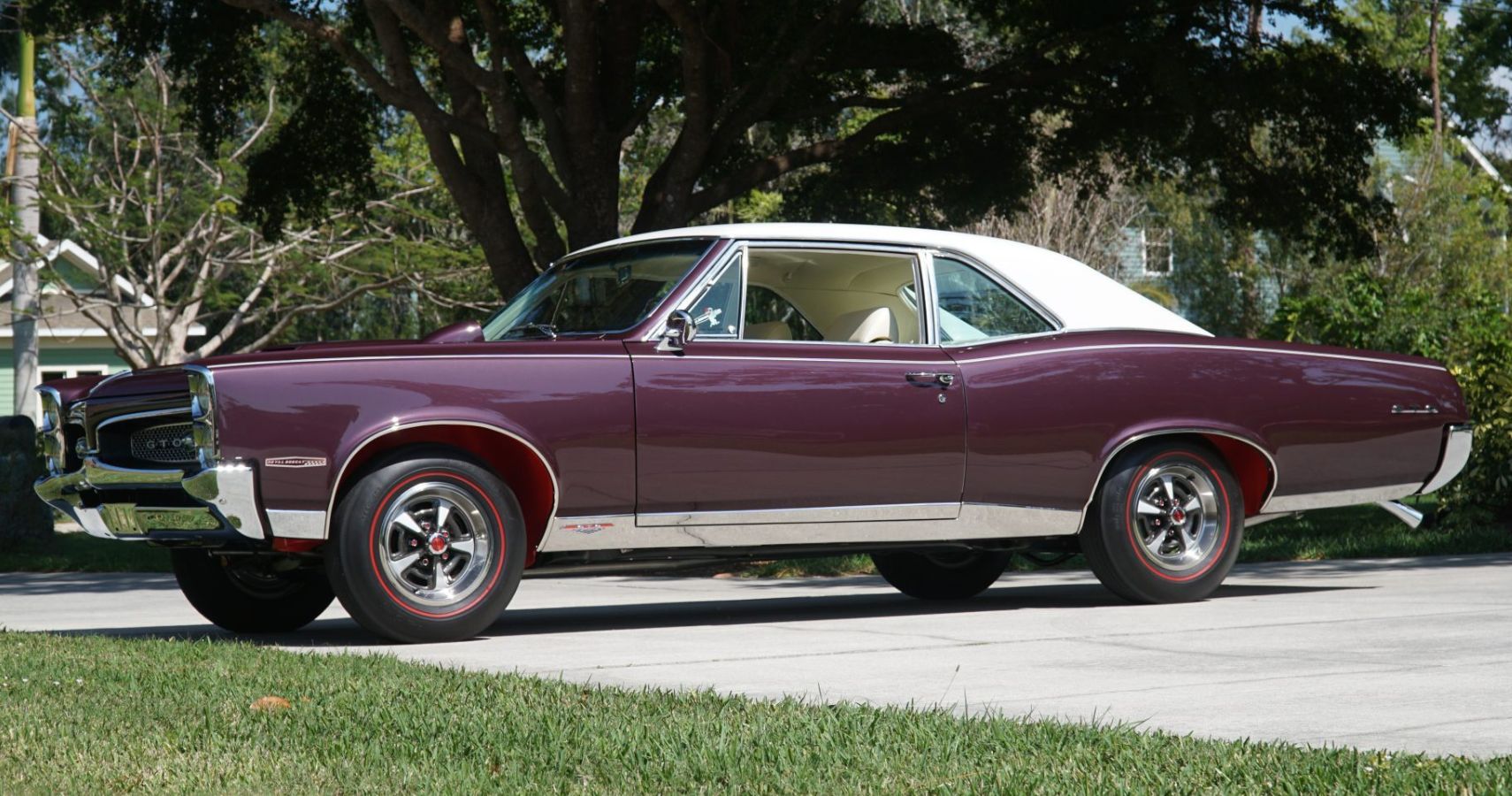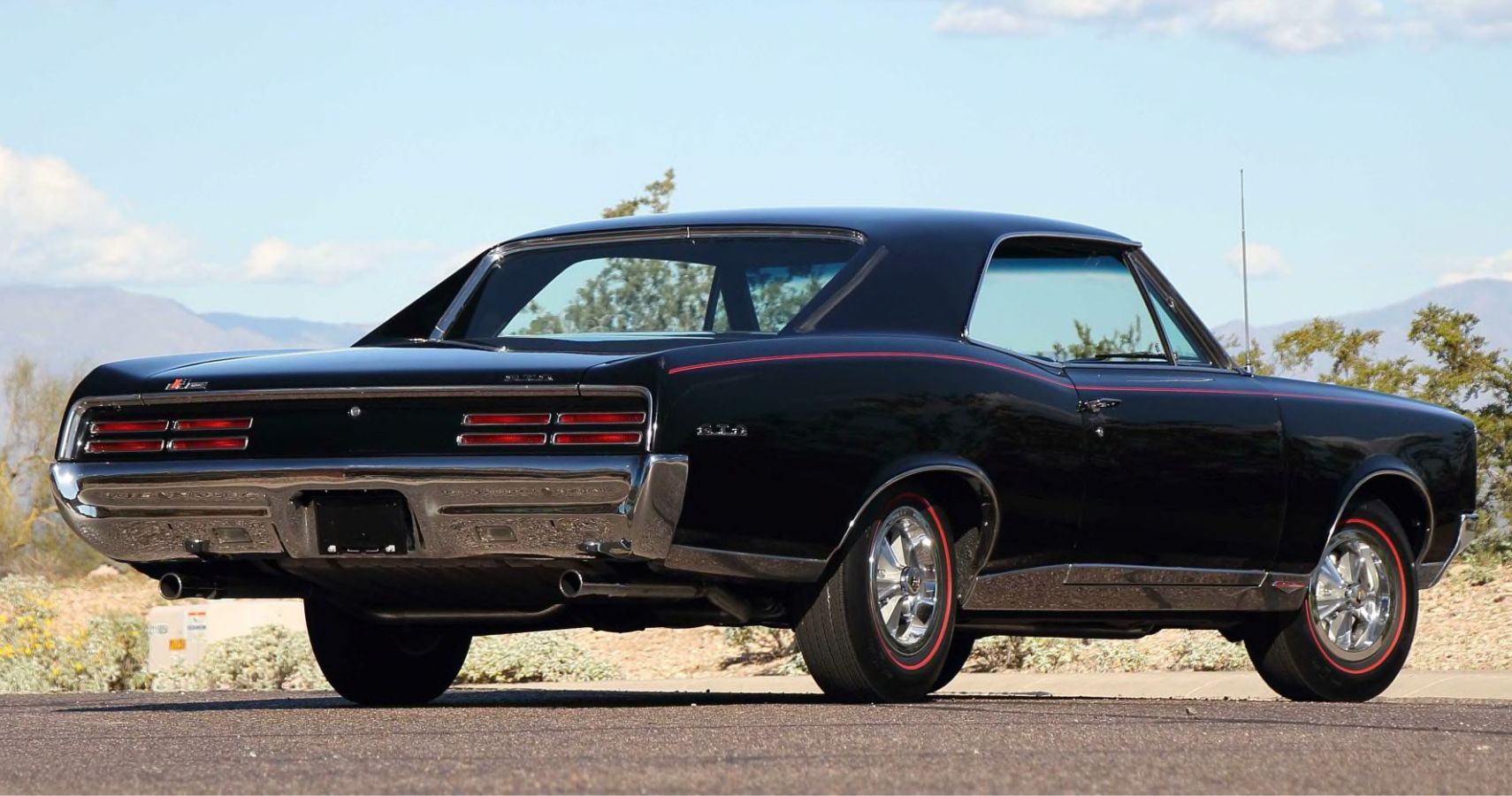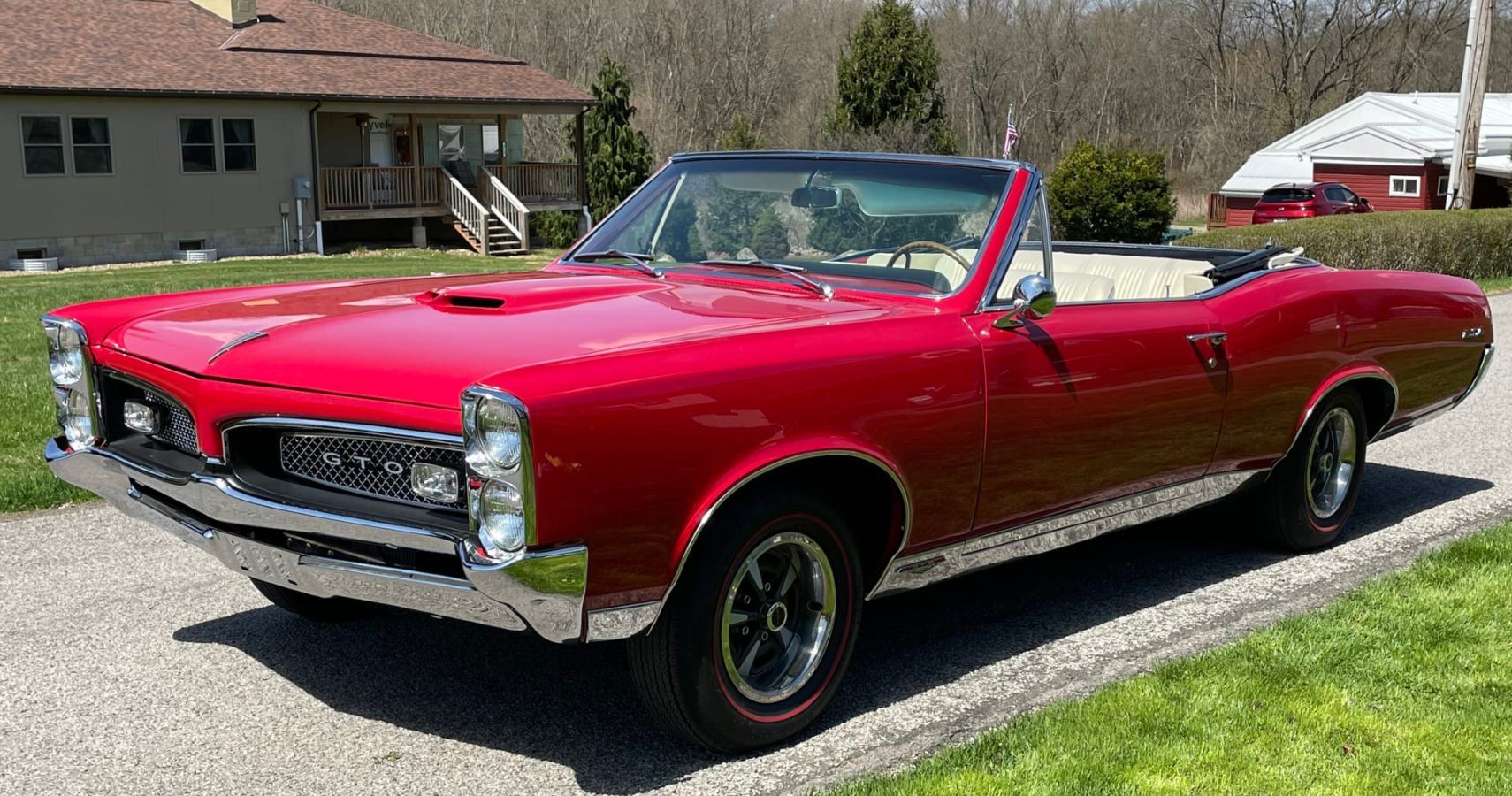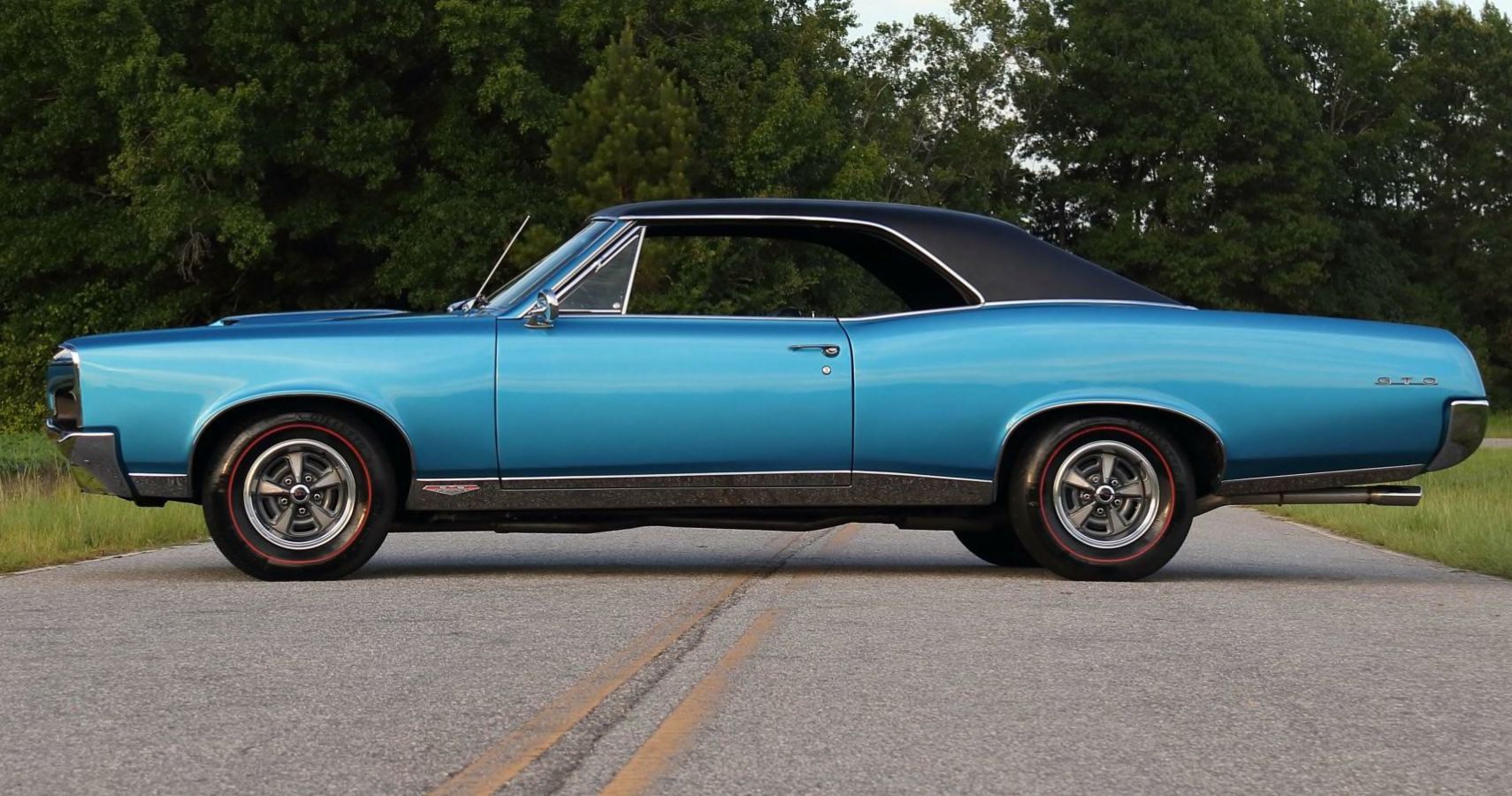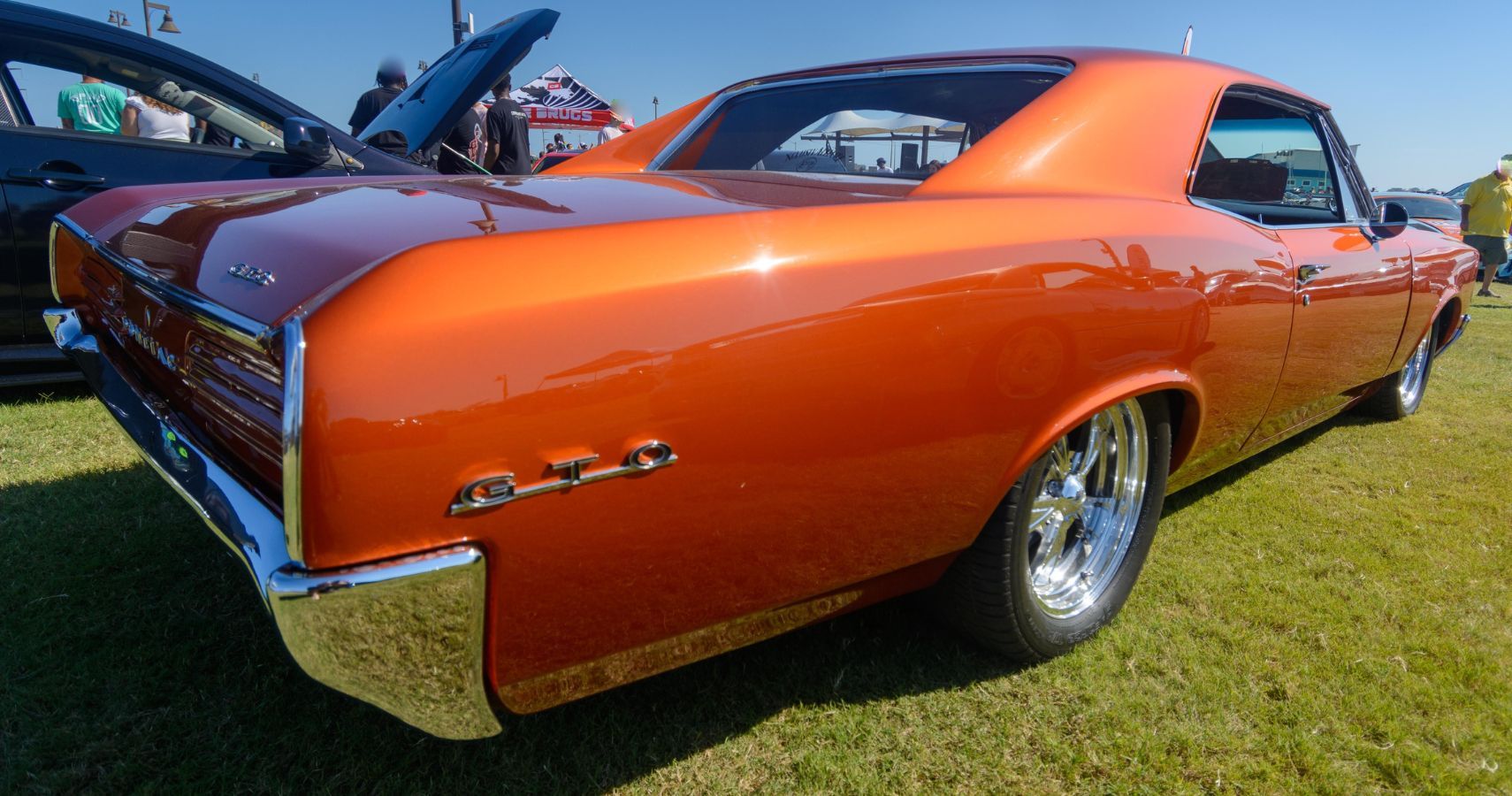Of all the Detroit muscle cars, most people consider the Pontiac GTO as the first. Pontiac's team of engineers, led by John DeLorean, figured out they could fit the 389 cubic-inch V8 from the full-size Bonneville into the mid-sized Tempest Chassis. After some burnout shenanigans in a 1963 prototype, the Pontiac GTO would debut as a 1964 model.
By 1967, General Motors was feeling continuing pressure from the Automobile Manufacturers Association (AMA) to not promote performance in their vehicles. Engineers came together at Pontiac to work a way around the scrutiny of GM and build a more powerful car. The 1967 Pontiac GTO skated around this by offering a 400 cubic-inch engine option in the affordable middle-tier model. Little did the engineering team know that the GTO would become an American automotive legend.
Pontiac GTO Is The Original Muscle Car
American muscle car popularity skyrocketed after releasing the first Pontiac GTO in 1964. Pontiac's first rival muscle car came in the form of an Oldsmobile 442. Other competitors in the muscle wars were Dodge Charger, Shelby Cobra, and Plymouth Road Runner. It also sparked Ford to pump up performance in the Mustang and Chevrolet to do the same with the Camaro.
The race began, and these American carmakers continued trying to one-up each other. Special trim packages and growing lists of engine options would be the norm until the Environmental Protection Agency (EPA) tightens the belt enough to kill the muscle car era by the mid-1970s. Before that tragic end, Pontiac would stuff a 335 horsepower 400 cubic-inch V8 into the 1967 GTO, forever solidifying it as the prominent symbol of American muscle cars.
Pontiac offered several options for the 400 cu-in engine. The 335 horsepower version came with 4-barrel carburetors, or you could choose a 2-barrel variant with a less exciting 255 horsepower. Opting for the High-Output, or dealer-installed Ram Air upgrade, boosted your GTO to 360 horsepower and 438 foot-pounds of torque. Some claim these numbers to be grossly underrated.
How Did The GTO Steal Its Name From A Ferrari?
There is a misconception that GTO stands for "Gas, Tires, and Oil". Seems fitting, but this is not the case. DeLorean took the name from the 1962 Ferrari GTO, which was the most valuable car in the world until recently losing the record to a 1955 Mercedes-Benz 300 SLR Uhlenhaut Coupe.
GTO actually stands for "Gran Turismo Omologato". That translates in English to Grand Touring Homologated. It dates back to regulations set by the Federation Internationale de l’Automobile (FIA). They dictate how many cars a manufacturer would have to produce to homologate into the Grand Touring competition.
The Pontiac GTO earned several nicknames over the years. These include "The Tiger" in 1964, "The Great One" in 1967, and "The Humbler" as the last marketing term for the muscle car in 1970. Enthusiasts of the GTO affectionately called it the "Goat", but this was a play on the letters GTO not "Greatest Of All Time".
Pontiac GTO Convertible Flexes Its Muscle By Going Topless
Keeping in mind that the GTO is a grand touring (GT) car, it only makes sense to have a convertible option for cruising. This was another reason for the success of the original muscle car. Big power in a mid-sized chassis and a top-down with the wind in your hair leads to an exhilarating drive down the boulevard.
The year 1966 marked the height of production for the Pontiac GTO. Total units sold that year hit 96,946, and 12,798 of those rolled off the line as convertibles. The year 1967 saw the first decline in sales for Pontiac at 81,722 total GTOs and 9,517 as rag tops. The High-Output and Ram Air options represented over 20,000 examples of the muscle car and break down to 13,310 and 751 units, respectively.
How Did The GTO Chassis Manage Its Insane V8 Power?
An open-rail chassis design was standard for hardtop Pontiac GTOs, but you could option the heavy-duty boxed frame from the convertible to have an extra-stout platform. All models use a ball-joint independent front suspension with rubber bushings for GT ride quality. Four-link rear ends did not equip these cars with a sway bar, but you could easily add them for better handling.
1967 GTOs received updated front spindles to allow for optional disc brakes. Being able to stop the more powerful 400 cubic-inch V8 from a launch became much easier with power-assisted 11-inch rotors. Semi-metallic brake pads clamp down to greatly increase the Pontiac GTO's stopping power.
Pontiac GTO Gains Traction As Muscle Car King
Getting all the V8 power to the ground became easier in 1966 with the addition of Safe-T-Track differential options. These replaced the standard open-diff gears. A low-level two-pinion differential comes with gear ratios up to 3.55:1, while a heavy-duty four-pinion variant would allow a choice of 3.90:1, 4.11:1, or 4.33:1 gears. Drag race and 0-60 mph times are obliterated with these positive-traction units and higher gear ratios.
It is easy to see how enthusiasts consider the Pontiac GTO the first muscle car and why it holds the hearts of American car nuts. Iconic styling, huge performance, and a name that takes a stab at Ferrari add up to a winning combination. While replacement parts are plentiful and inexpensive, good luck finding a GTO for much less than $10,000 that doesn't need a lot of work. A pristine example could run you into six figures-plus with a recently recorded highest sales price of $1.1 million for a 1970 Pontiac GTO Judge.

